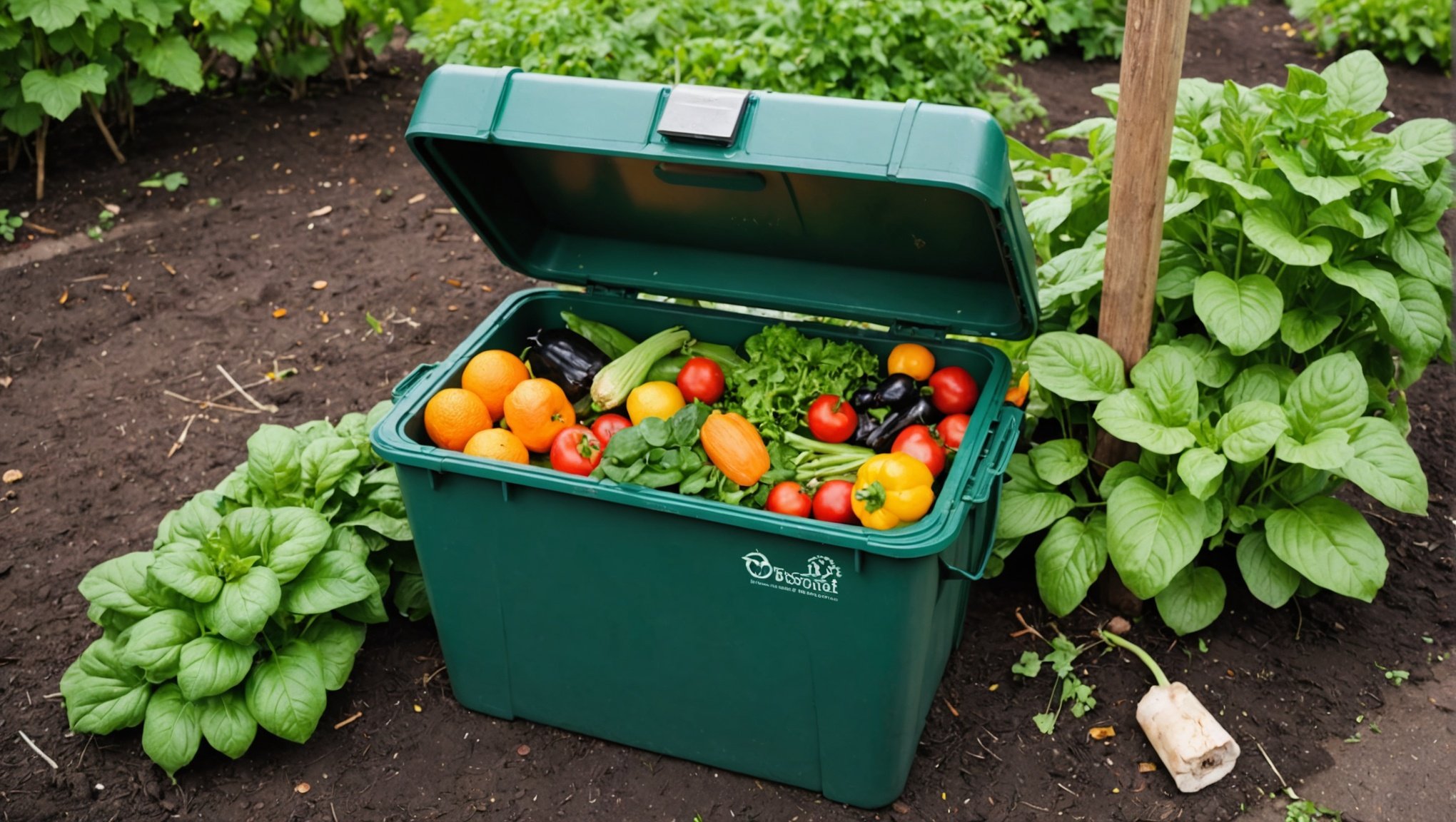Food waste is a significant environmental issue, contributing to greenhouse gas emissions and resource depletion. Using a kitchen compost bin can transform this waste into a valuable resource, enriching soil and promoting sustainability. Beyond reducing landfill contributions, composting offers a hands-on approach to environmental stewardship. Discover the numerous advantages of incorporating a compost bin into your kitchen routine and how it can lead to a more sustainable lifestyle. Embrace composting and unlock a greener future, one meal at a time.
Understanding Food Waste and Its Impact
Food waste is a significant global issue with far-reaching consequences. According to recent statistics, approximately one-third of all food produced globally is wasted. This not only represents a loss of valuable resources but also contributes heavily to environmental degradation. The environmental impact of food waste is profound. When food waste decomposes in landfills, it produces methane, a greenhouse gas that is over 25 times more potent than carbon dioxide. This exacerbates climate change and undermines efforts towards sustainability.
Topic to read : Unlock Energy Savings and Healthier Cooking: The Benefits of Switching to an Induction Cooktop
Reducing food waste is crucial for environmental sustainability. One effective method is composting, which transforms organic waste into nutrient-rich soil. Composting not only minimises the amount of waste sent to landfills but also enriches the soil, promoting healthier plant growth and reducing the need for chemical fertilisers. By adopting composting, individuals and communities can play a significant role in mitigating the environmental impact of food waste.
In summary, addressing food waste is essential for both environmental and economic reasons. By understanding its implications and adopting sustainable practices like composting, we can reduce its adverse effects and contribute to a more sustainable future.
Also to see : Unlock Energy Savings and Healthier Cooking: The Benefits of Switching to an Induction Cooktop
The Benefits of Using a Kitchen Compost Bin
Incorporating a kitchen compost bin into your home routine offers numerous advantages. One of the most significant benefits of composting at home is its contribution to waste reduction. By using a kitchen compost bin, households can significantly decrease the amount of organic waste that ends up in landfills. This not only helps reduce methane emissions but also promotes a more sustainable lifestyle.
Kitchen compost bins are particularly beneficial for home gardeners. Composting transforms food scraps into nutrient-rich compost, which can be used to enhance soil health. Improved soil quality leads to healthier plants, reducing the need for chemical fertilisers. This is an excellent way for gardeners to maintain a thriving garden while being environmentally conscious.
Moreover, using a kitchen compost bin is a practical solution for managing waste efficiently. These bins are designed to fit conveniently in kitchens, making it easier for individuals to collect and store food scraps. This accessibility encourages consistent composting habits, leading to long-term waste reduction and environmental benefits. By adopting a kitchen compost bin, individuals can play a crucial role in promoting sustainability and improving soil health.
Practical Tips for Using a Kitchen Compost Bin
Kitchen composting is a simple yet effective way to manage waste and enhance soil health. To make the most of your composting efforts, consider these practical tips.
Selecting the Right Compost Bin
Choosing the appropriate compost bin is crucial for efficient composting. Look for a bin that fits your kitchen space and has a tight-fitting lid to contain odours and deter pests. Consider materials like stainless steel or plastic, which are easy to clean and maintain.
What to Compost and What Not to Compost
Understanding what materials are suitable for kitchen composting is essential. Compostable items include fruit and vegetable scraps, coffee grounds, and eggshells. Avoid adding meat, dairy, and oily foods, as they can attract pests and create odours. By composting the right materials, you ensure a healthy composting process.
Maintaining Your Compost Bin
To optimise the composting process, regularly turn the compost to aerate it and speed up decomposition. Monitoring moisture levels is also important; the compost should be as damp as a wrung-out sponge. Common mistakes to avoid include overloading the bin and neglecting to turn the compost. Regular maintenance ensures efficient decomposition and prevents unpleasant smells.
Composting vs. Traditional Waste Disposal
When it comes to waste management solutions, the choice between composting and traditional waste disposal is significant. Composting offers numerous environmental benefits compared to landfill disposal methods. Unlike landfills, where organic waste decomposes anaerobically to produce methane, composting allows aerobic decomposition, significantly reducing greenhouse gas emissions. This makes composting a more sustainable option for managing organic waste.
In addition to environmental advantages, composting provides economic benefits over traditional waste disposal. By reducing the volume of waste sent to landfills, municipalities can lower waste management costs. Composting also produces nutrient-rich soil amendments, which can reduce the need for chemical fertilisers, saving money for individuals and communities alike.
From an environmental perspective, composting supports healthier ecosystems by enriching soil and promoting biodiversity. This contrasts with landfills, which contribute to soil and water pollution. By choosing composting over traditional disposal methods, individuals and communities can support sustainable waste management practices while enjoying economic savings and contributing to a healthier planet.
Composting not only transforms waste into a valuable resource but also aligns with broader efforts to reduce environmental impact and promote sustainability.
The Role of Compost in Soil Health
Compost plays a pivotal role in enhancing soil health and supporting sustainable agriculture. It enriches the soil with essential nutrients, improving its structure and fertility. These compost benefits are crucial for plant growth, as they provide a balanced supply of nutrients that plants need to thrive.
Nutritional Benefits of Compost for Soil
Compost is rich in organic matter, supplying soil with nitrogen, phosphorus, and potassium—key nutrients for plant development. This nutrient-rich amendment improves soil texture, increasing its water retention capacity and aeration. As a result, plants can access nutrients more efficiently, promoting robust growth and resilience against diseases.
The Impact of Compost on Plant Growth
The addition of compost enhances plant growth by fostering a healthy root environment. It encourages beneficial microbial activity, which breaks down organic matter, releasing nutrients slowly over time. This gradual nutrient release supports sustained plant growth and reduces the need for chemical fertilisers, aligning with sustainable agriculture goals.
Supporting Sustainable Agriculture Practices
By incorporating compost into farming practices, farmers can achieve more sustainable agriculture. Composting reduces reliance on synthetic inputs, lowers greenhouse gas emissions, and improves soil biodiversity. These practices contribute to long-term soil health, ensuring agricultural productivity and environmental sustainability for future generations.
Addressing Common Misconceptions About Composting
Composting is often misunderstood, leading to several composting misconceptions. One prevalent myth is that composting invariably leads to unpleasant odours and attracts pests. However, when managed correctly, composting should not produce foul smells or become a haven for pests. Ensuring a balanced mix of green and brown materials, along with regular turning, can effectively mitigate these issues.
Another common myth about composting is its perceived complexity and inaccessibility. Many believe it requires significant effort and space, which is not the case. Modern composting solutions, like kitchen compost bins, are designed to be compact and user-friendly, making composting accessible to individuals with limited space or time.
Additionally, some people assume that composting is only for gardeners or those with large outdoor areas. In reality, composting is a versatile practice that can benefit anyone looking to reduce waste. Urban dwellers, for instance, can engage in composting through community initiatives or small-scale indoor systems. By debunking these myths about composting, more individuals can embrace this sustainable practice and contribute positively to the environment.
Community Initiatives and Resources for Composting
Engaging in community composting offers a collective approach to reducing waste and promoting sustainability. Many local initiatives provide platforms where individuals can contribute their organic waste to a communal composting system. These programs often operate in urban settings where space for personal composting is limited, making it easier for residents to participate in sustainable practices.
Composting resources are widely available to support individuals in starting and maintaining their composting efforts at home. These resources can include workshops, online guides, and toolkits that offer step-by-step instructions and tips for effective composting. Access to such resources empowers individuals to manage their organic waste efficiently and contribute to environmental preservation.
To engage with local initiatives, individuals can connect with community gardens, environmental organisations, or municipal programs focused on sustainability. These groups often organise events and provide educational materials to raise awareness about the benefits of composting. By participating in these efforts, individuals not only reduce their waste footprint but also foster a sense of community and shared responsibility for environmental health.
Future of Composting and Sustainable Practices
The future of composting is poised for significant advancements, driven by innovations in technology and evolving sustainable practices. As urban areas continue to expand, the demand for efficient composting solutions grows. Innovations like smart composting bins, which monitor moisture and temperature levels, are making composting more accessible and effective.
Innovations in Composting Technology
Recent developments have introduced automated composting systems that streamline the process, reducing manual effort and time. These systems utilise sensors and software to optimise conditions for decomposition, making composting feasible even in space-constrained urban environments.
Growing Trend in Urban Areas
Urban areas are increasingly adopting composting practices as part of broader waste reduction strategies. Community composting initiatives and municipal programs are becoming commonplace, reflecting a shift towards collective environmental responsibility. This trend not only supports waste reduction but also enhances urban sustainability.
Predictions for Future Waste Management
Looking ahead, composting is expected to play a central role in future waste management strategies. As awareness of its environmental benefits grows, composting will likely become an integral component of circular economies, promoting resource efficiency and sustainability. By embracing these advancements, communities can significantly reduce their waste footprint and contribute to a healthier planet.






